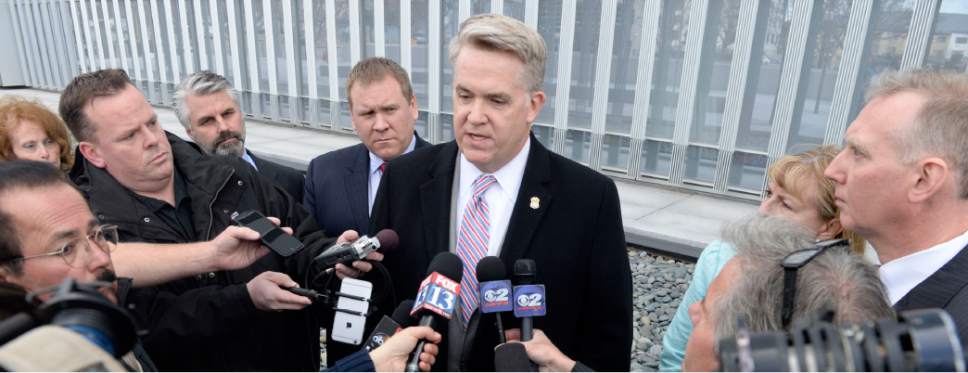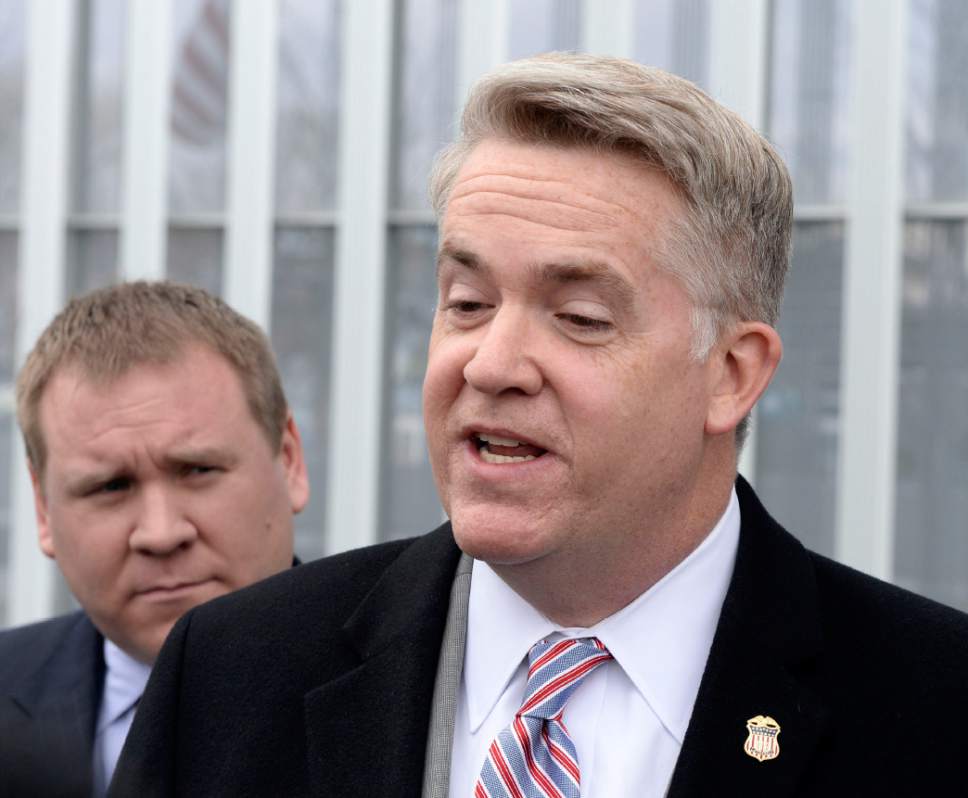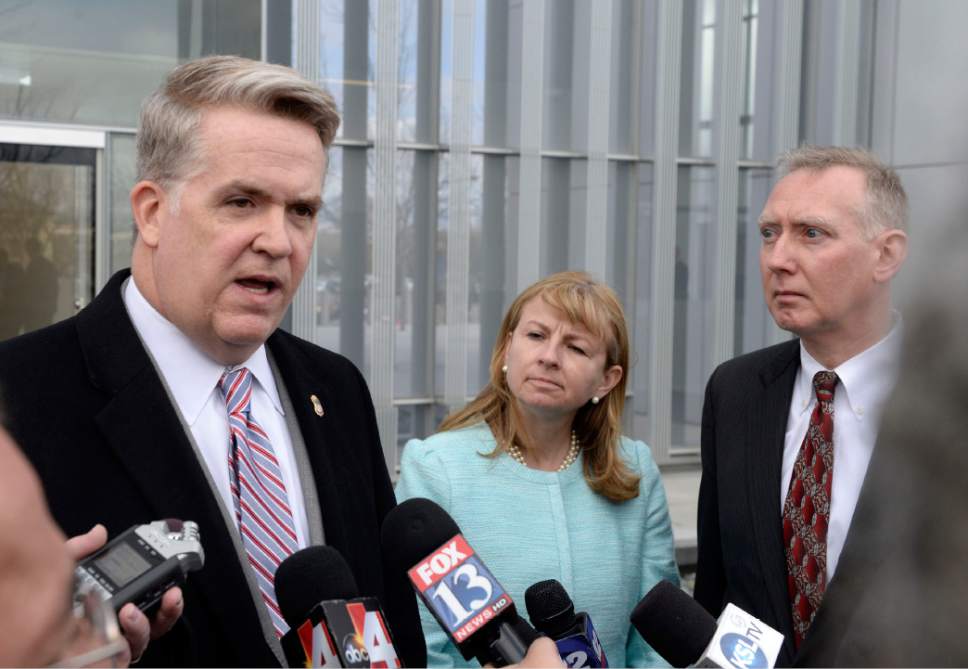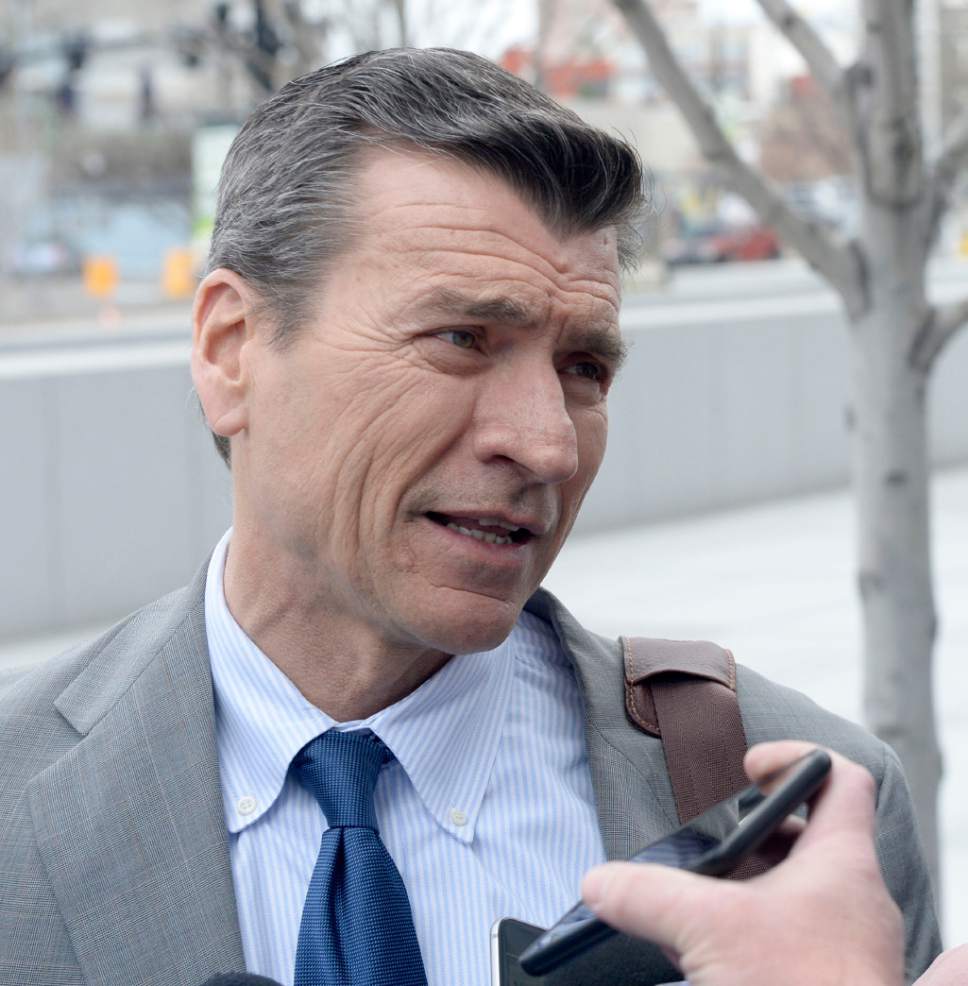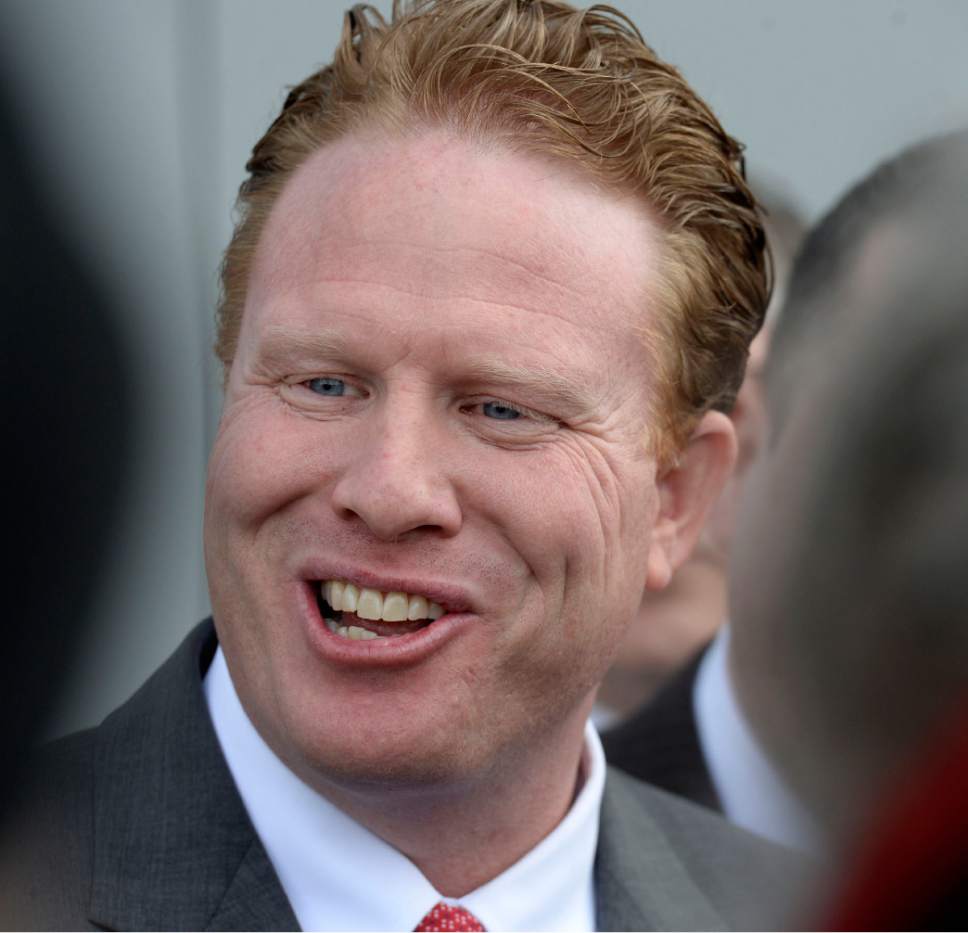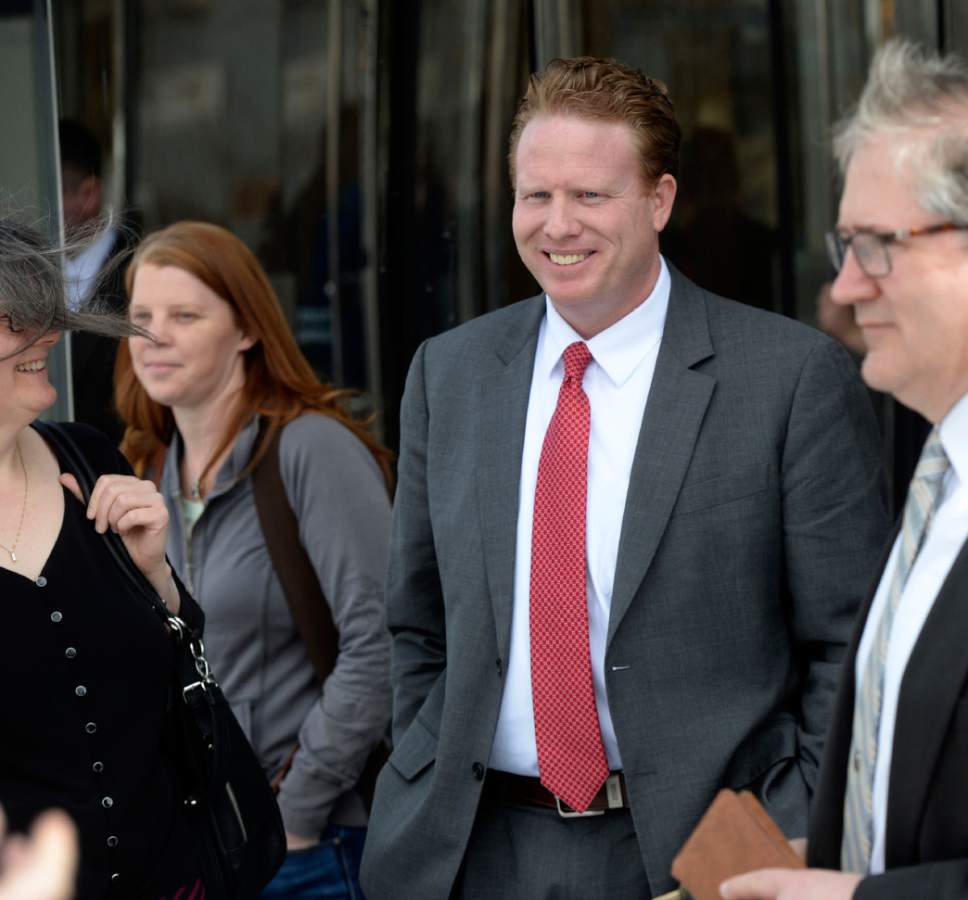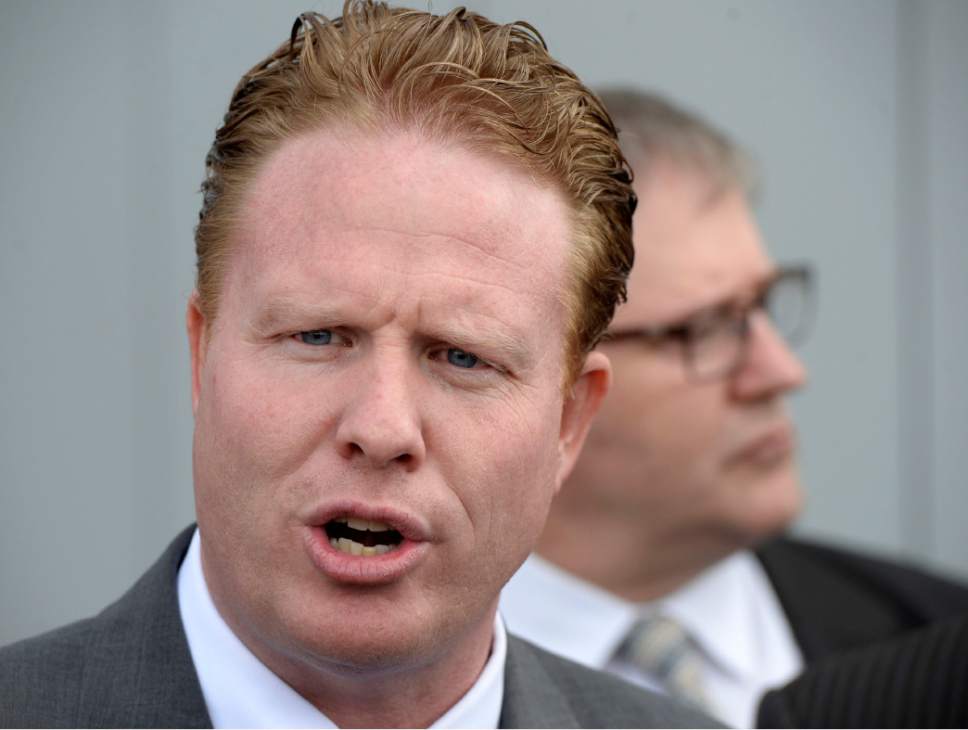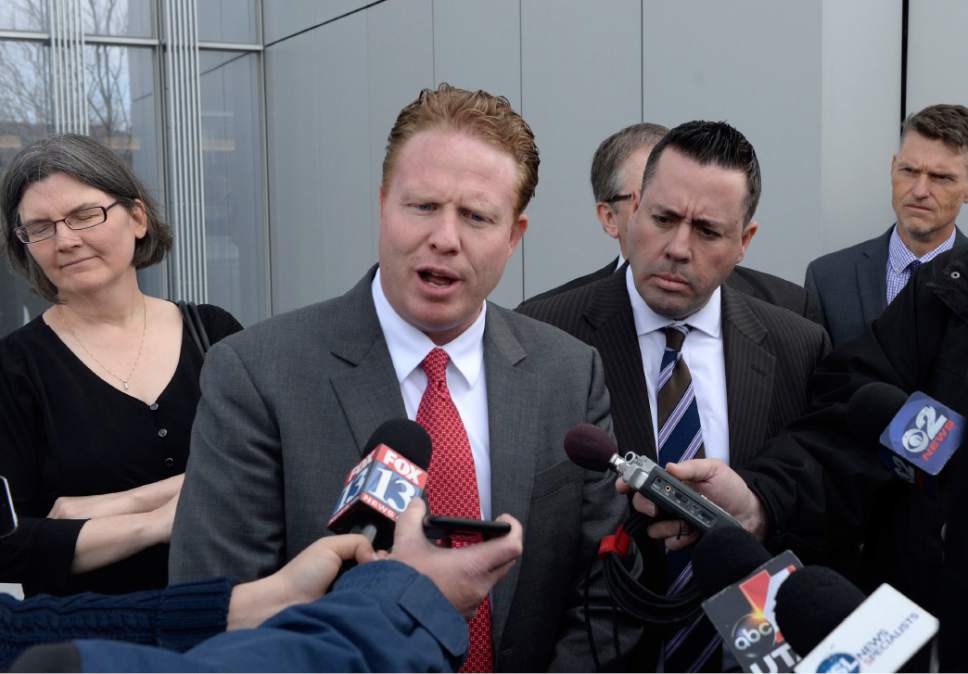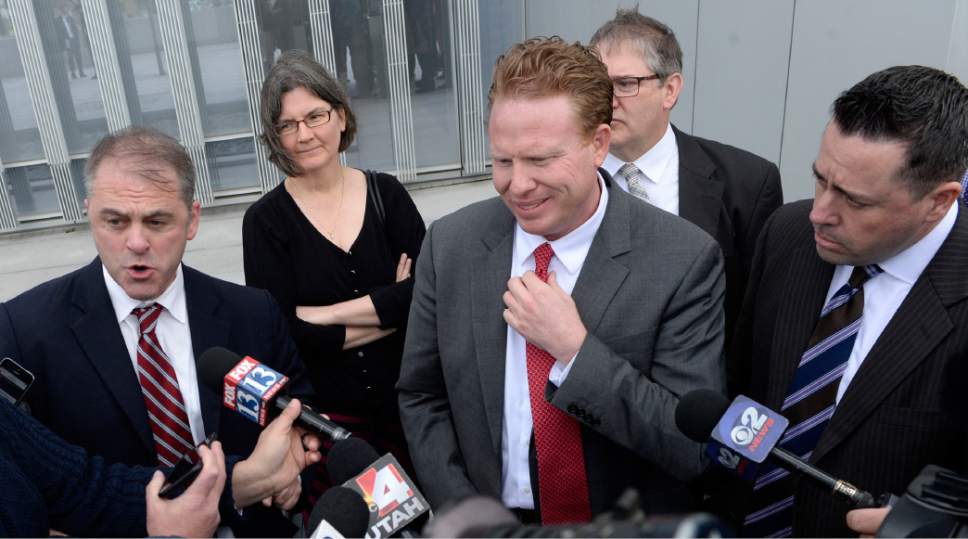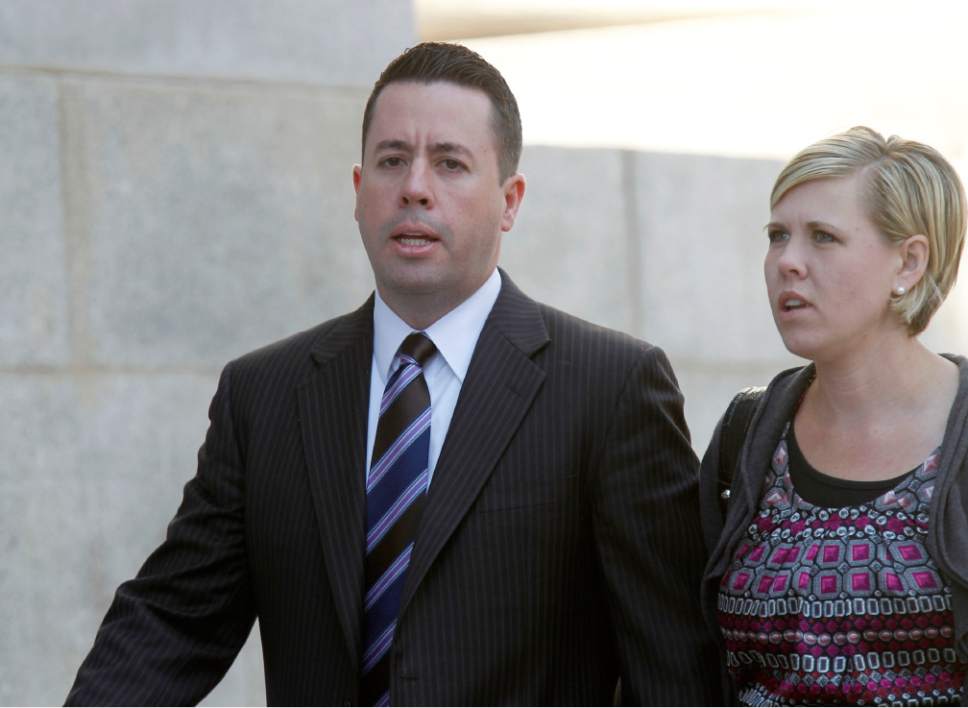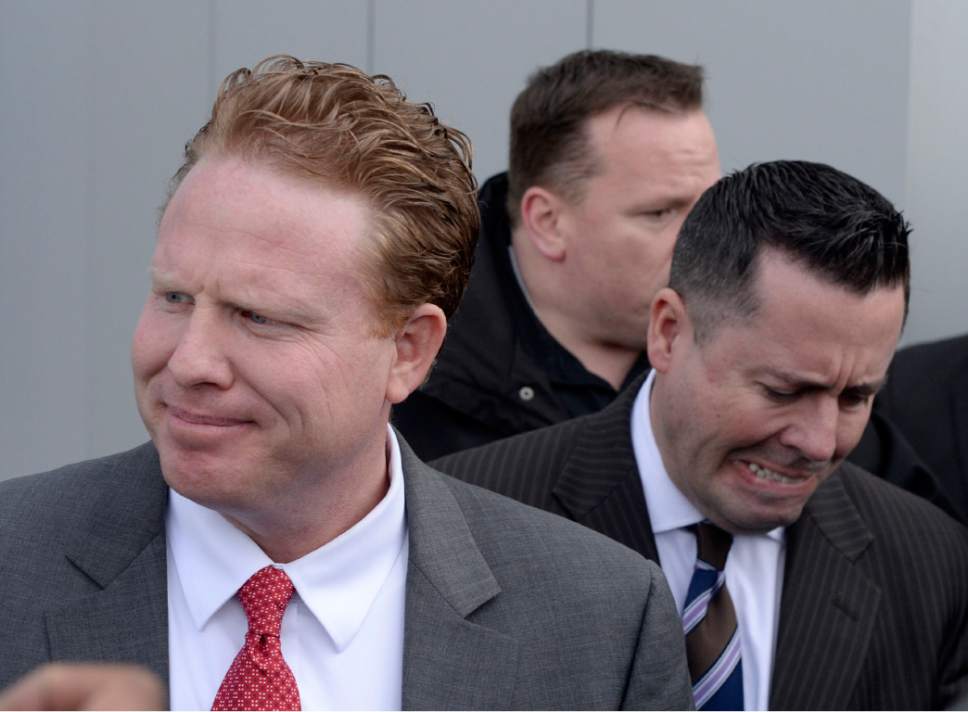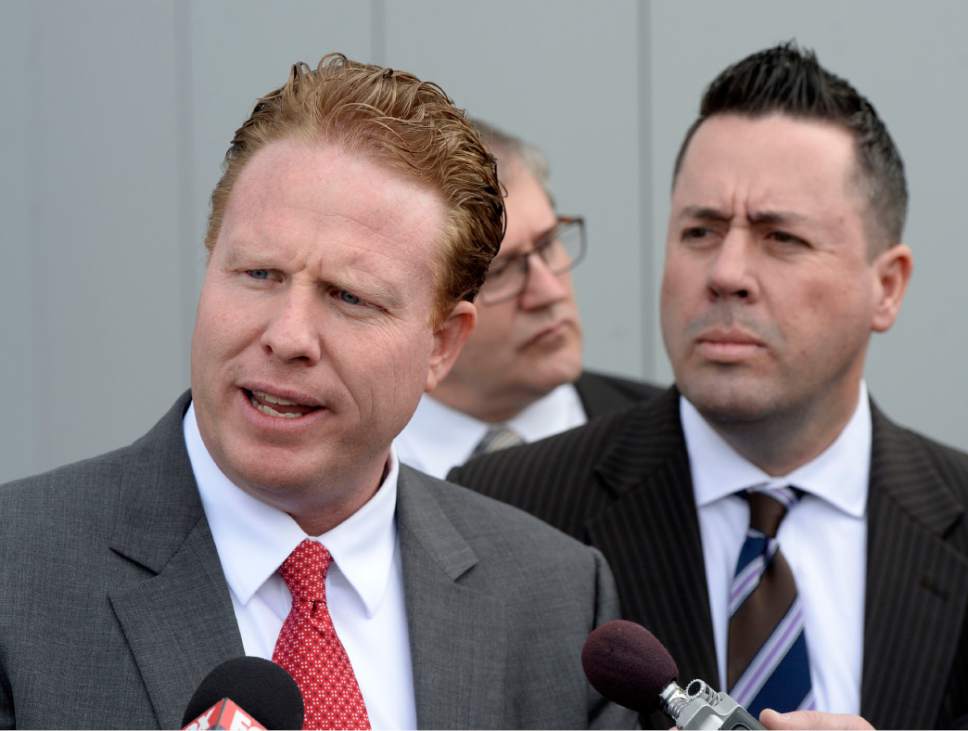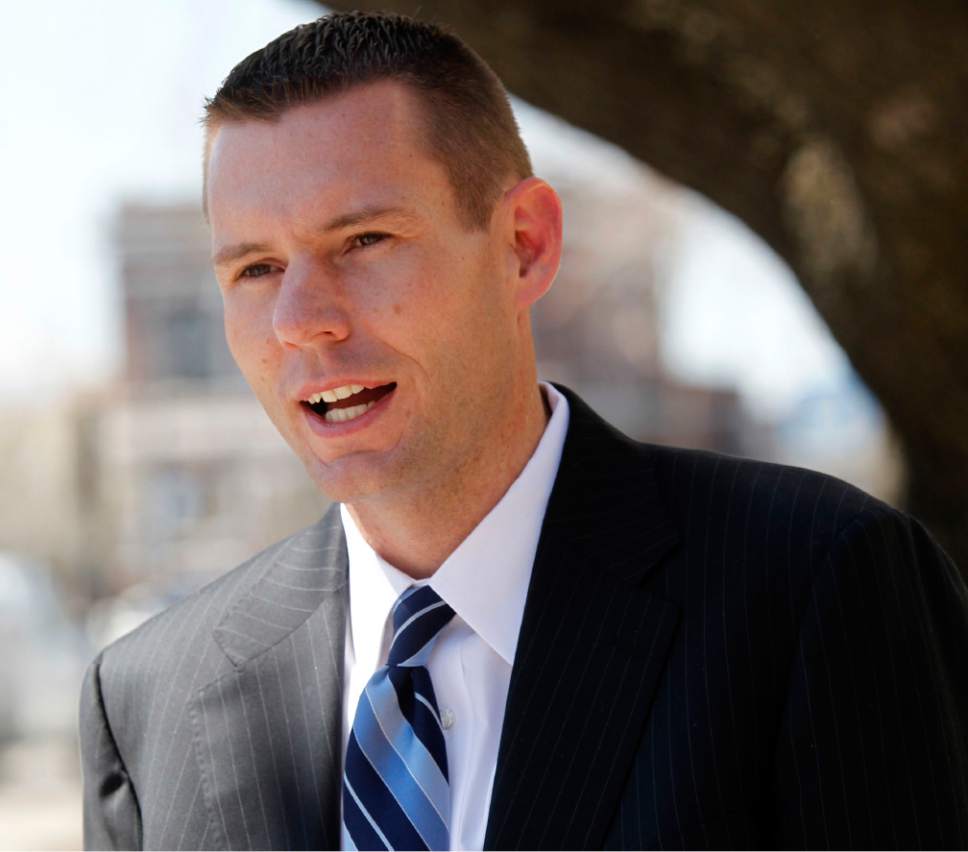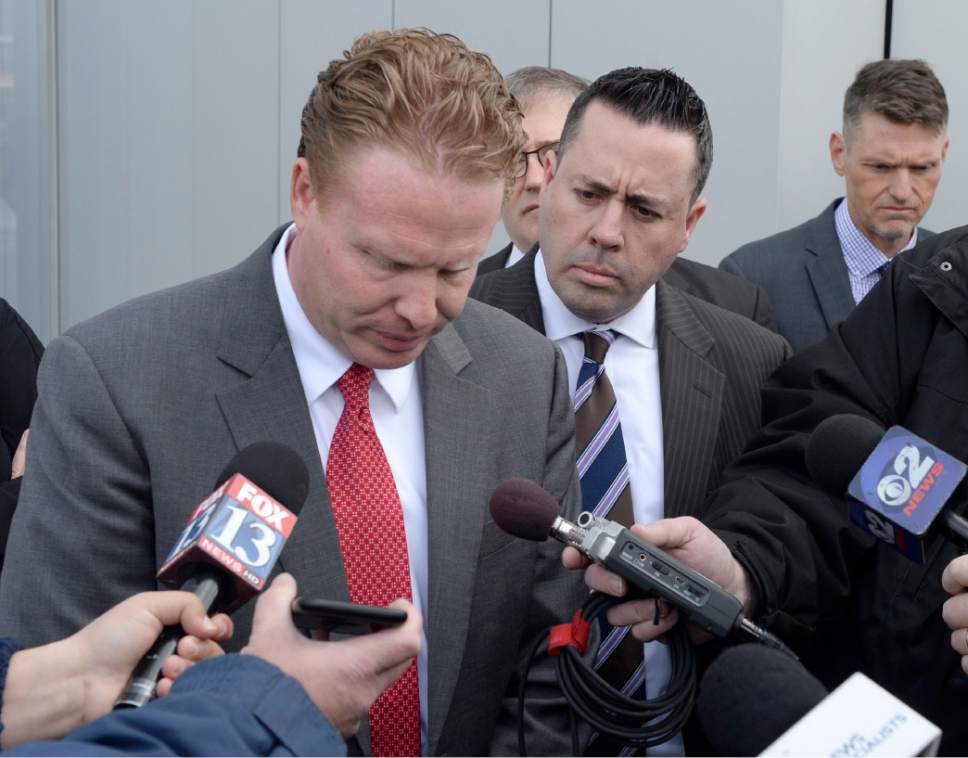This is an archived article that was published on sltrib.com in 2016, and information in the article may be outdated. It is provided only for personal research purposes and may not be reprinted.
A federal judge issued a scathing rebuke of Jeremy Johnson on Friday and then sent the St. George Internet entrepreneur to jail while he awaits sentencing on eight counts of providing false information to a bank.
A jury convicted Johnson last week, but also found him not guilty of 78 other charges, including all fraud counts. At the conclusion of Friday's hearing on the government's request to jail Johnson, U.S. District Judge David Nuffer said he found "clear and convincing evidence" that Johnson was a danger to the community and a potential flight risk prior to a June 20 sentencing hearing.
Nuffer called Johnson "deceptive," "borderline delusional," a person who orchestrated "a scheme to conceal," who "betrayed persons close to him" and "can't be trusted."
"Johnson has, in my perception, an almost complete lack of integrity," said Nuffer, adding that the eight counts on which the defendant was convicted "were the core of the scheme."
Federal prosecutors cited a litany of reasons that Johnson should be jailed immediately. Those include fines for improper operation of aircraft, creation of websites attacking government attorneys, and improper contact with two witnesses during his six-week trial.
Government agents also apparently observed Johnson gambling in Las Vegas, and prosecutors said he was seen loitering around their office, apparently taking photos or videos with his cellphone, and that he once attempted to enter the State Street building where their offices are after hours.
Johnson — who had remained free, but on an ankle monitor after last week's verdicts — tried to explain away those and other incidents but couldn't convince the judge that he wasn't a danger to the community and wouldn't try to flee.
"I would rather live the rest of my life in prison than live a life looking over my shoulder and without my family and the people I care about," said a tearful Johnson, rejecting the notion that he might become a wanted fugitive. "I will be here, as I have been for every hearing. I'll be here for sentencing, and I'll accept whatever it is."
He later was booked into the Weber County Jail.
Johnson's wife, Sharla, was in the courtroom and after her husband was led away in handcuffs, she said the couple looked forward to trying to overturn on appeal the verdict on the eight charges.
"I'm afraid to say much more because I don't want to get in trouble," she said in a statement, "or for my words to be used against my husband in any way."
She forwarded a message from Johnson saying that he was grateful he got to spend Easter with his family.
Nuffer allowed Johnson's co-defendant Ryan Riddle, who was convicted on six counts, to remain free pending sentencing.
Johnson and Riddle face up to 30 years in prison on each of the charges, but such sentences are rarely imposed. Instead, the government and Johnson and his attorneys are expected to battle over what the federal sentencing guidelines are for his convictions.
Prosecutors said they will seek enhancements that will lengthen the recommended sentence range. The final decision is up to Nuffer.
Johnson represented himself during the trial. Now attorneys Rebecca and Greg Skordas, Johnson's previous court-appointed lawyers, have been reappointed to represent him through sentencing.
"I thought we had a shot today, I really did," Greg Skordas said after the Friday hearing. "We're only talking about 80 days till sentencing, versus five years of showing up for everything."
In a motion to the court, Skordas wrote that the charges Johnson was convicted of carry no implication that he had intended to defraud Wells Fargo Bank when he committed the offenses or that the bank had suffered any financial loss.
In court, Skordas argued that although Johnson may be guilty of the "quirky or inexplicable" behaviors referenced by prosecutors, and may sometimes have skirted the rules in other settings, he had not missed, or been late for, a single hearing in the five years it has taken the case to run.
"That's what he does because he's goofy," Skordas said. "But when he's charged with 86 felonies, he follows the rules."
Skordas also told Nuffer that prosecutors in Davis and Salt Lake counties wanted Johnson to remain free because he is a critical witness in the public corruption cases underway for former Utah Attorneys General Mark Shurtleff and John Swallow and that they continue to meet with them as those cases progress.
A letter from Davis County Attorney Troy Rawlings appears to say that the federal government wanted Johnson in jail to stymie not just Rawlings' prosecution of Shurtleff but also a related probe he calls "Rogue Runner."
Rogue Runner is possibly a reference to Rawlings' investigation of others in the political corruption scandal, including U.S. Sen. Harry Reid, D-Nev.
Johnson has said that Swallow assisted him in an attempt to enlist Reid's help in getting federal regulators to stall a probe of Johnson's I Works company. The businessman has characterized the undertaking as a bid to "bribe" Reid, who was then Senate majority leader, while Swallow has called it a "lobbying" effort.
Shurtleff, Swallow and Reid have denied wrongdoing.
Federal prosecutors said Friday that Johnson's choices and behaviors should not be merely dismissed as goofy, quirky or just "Jeremy being Jeremy," as Skordas had argued.
"Jeremy being Jeremy is being deceitful," Assistant U.S. Attorney Karin Fojtik said. "He continues to misrepresent what he's done."
Riddle declined to comment after the hearing.
The jury cleared a third defendant, Scott Leavitt, of all 86 charges against him.
The government alleged that Johnson and the two employees of his online marketing company I Works had conspired to defraud Wells Fargo Bank by submitting false papers to obtain bank accounts that would allow them to charge consumer credit cards after the company's own accounts were shut down because of a high number of chargebacks.
But the jury found them not guilty on all fraud, conspiracy and money-laundering counts.


